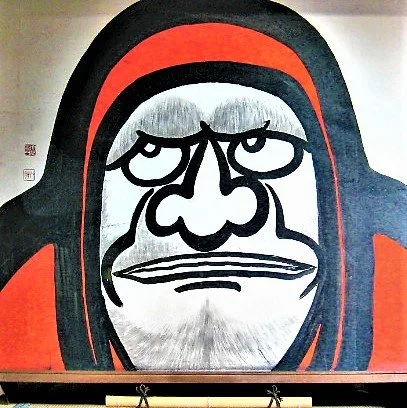Please feel free to listen to my music while you read. Thanks and I hope you enjoy!
To revolve, to evolve with self-respect, cause we got to keep ourselves in check, or else it’s...self-destruction.
- Chuck D, Self Destruction
One way to identify suffering, whether as an individual, community, or society, is by paying attention to cycles of behavior and thinking which never seems to amount to an improvement in our lives. Just when we think we've created the perfect situation by obtaining the perfect car, relationship, job, home, etc., we soon realize how imperfect the situation is: the car gets a blemish that can't be removed, we have the first big argument with our partners, our job becomes stale and full of rote activity, and our homes need repair, new furnishings and cleaning. Indeed, when we are always on the search for something new it is like a revolving door that never grants us entry into the palace of permanent happiness. This hunt for satisfaction also extends itself into psychological and spiritual realms. Very often we feel that if we obtain the right insights, ideas, intellectual pursuits, college degrees, or transcendent experiences through drugs, spiritual trinkets and texts, retreats and even meditation practices, then that will bring the happiness that we are searching for into our lives. Unfortunately, even when we run after these symbols of education and enlightenment we are still disappointed. When our search extends so far beyond oneself that we forget that WE are our most inherent resource, we lose our connection with the power that produces growth without need for supplement or appropriation.
If we want to evolve or "develop and grow to another level" as Ms. Melodie says earlier in the song Self Destruction, we must first start with self respect, but what is self respect? We could debate the idea of "a self" all day long and it is not my intention to do that here. However, to simplify things I'll relatively define the self as that which we seem to carry with us throughout the duration of our lives. If we search our bodies and minds we will find no "self" (trust me, I've looked), but our physical and mental experience is often as real as it gets. Treating our bodies and minds with respect means appreciating and regarding them as precious gifts we did little to obtain. We have no greater friends than this body that supports us and mind that guides us, but how are we displaying this admiration for our most intimate companions? Are we involved in self creation or self destruction? Do we spend time with these mates focusing our awareness on them in order to deeply know them, feel them, bond with them, and even feel ourselves AS them, or do we place our awareness on the external world, hoping that somewhere out there is something better than this? How can we display a greater respect for ourselves? What is the impact of self respect on family, community, society and our world? What do I have that I ignore and why? What is the connection between self respect and my own self destructive tendencies?
Let's contemplate this: Sit in an upright and comfortable position (on a cushion or chair) with your hands in the meditation posture (place the back of your left hand on the palm of your right hand and let your thumbs touch lightly). Let your eyes rest, half closed and focused on nothing in particular. Let everything in your field of vision just be, without labelling it or judging it. Just let your eyes relax. Sit for five minutes and focus all of your attention on breathing. Feel the complete in and out breath and when your mind wanders, bring your attention back to your breath.
After five minutes, allow a word, a sentence, or the entire phrase to arise in your mind and when the word, sentence, or phrase fades, say it gently again. Allow whatever arises to arise without judgement and when something feels real, when there's some spark of insight, rest in your mind and place your attention on it. When your mind starts to wander, bring your attention back to what arose for you. Practice contemplation for ten minutes and then return to focusing on your breath for five more minutes. Focus only on the most subtle of experience. Afterwards, carry whatever arose for you in contemplation practice into your everyday life.
Check this previous post for an explanation of contemplation practice. http://www.hiphopalive.org/mind-spray/2016/12/7/4p2lnb8omwoc5dc5uznhcxii002b89
If there is a verse you think should be contemplated or think I should discuss, let me know in the comment section below.
Hiphop Alive
Justin F. Miles is the founder of Hiphop Alive and pioneering practitioner, theorist and educator at the intersection of Hiphop culture, mindfulness and contemplative studies. He is the leading voice championing the use of Hiphop infused contemplative modalities to foster resilience, emotional intelligence, and community empowerment.














